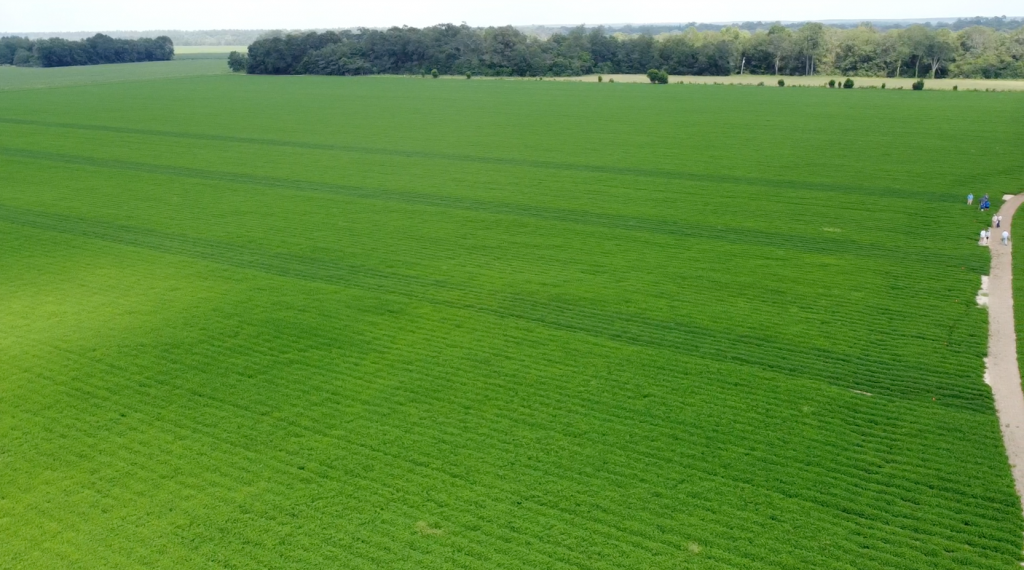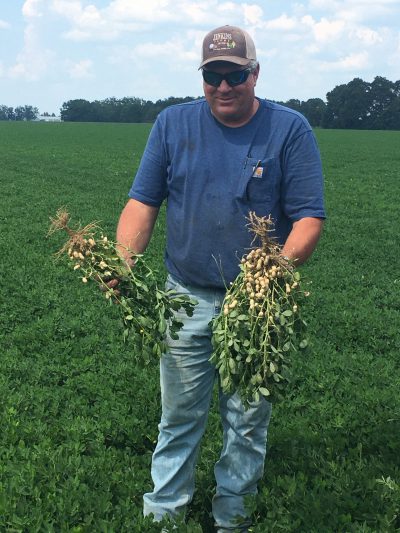
–

Plant growth regulators (PGR) are a common occurrence in cotton production, but in the last few years, work has been done on Apogee, a peanut PGR generally recommended for use in irrigated acreage. Apogee, a BASF product, utilizes prohexadione calcium as the active ingredient to help decrease vine growth in areas that tend to have prolific coverage but is also used in apple, sweet cherries, and grass grown for seed. The BASF label describes the following mode of action for the product: Apogee acts within a peanut plant to inhibit the biosynthesis of gibberellin. The result is a decrease in cell elongation and a reduction in vegetative growth. Under normal use patterns, Apogee will not affect the number of leaves, but will decrease the distance between leaves (internode length). The recommended first application is recommended when lateral vines are at 50% lapping, and a second at full row closure as needed. The label is clear to point out that plants under moisture stress and/or disease pressure will show little response to application. Apogee can be tank mixed with many fungicides and insecticides but should not be mixed with calcium. UGA and NC State published an article Using a Plant Growth Regulator in The Peanut Grower back in 2018, but growing conditions in that part of the world can be different than those of us living along the Gulf Coast.
The peanuts of Western Florida are not as highly irrigated as other growing regions, but with an often-abundant rainfall situation, vines can become vigorous. One local farmer has been testing Apogee in a dryland field at different rates and schedules. During a recent visit, Ryan Jenkins of Santa Rosa County, and Drew Schrimsher, Agri AFC, discuss using Apogee in a beautiful, dryland peanut field. Please see the video to learn more about his on-farm trial. Drew Schrimsher, Greenpoint Ag agronomist, said he is seeing a 400 lb increase depending on treatments and timing in plots throughout Alabama, Florida, and Georgia.
–
